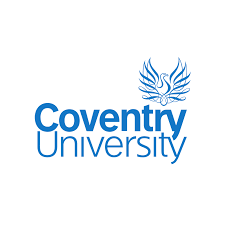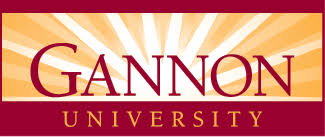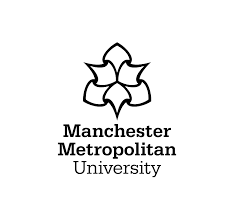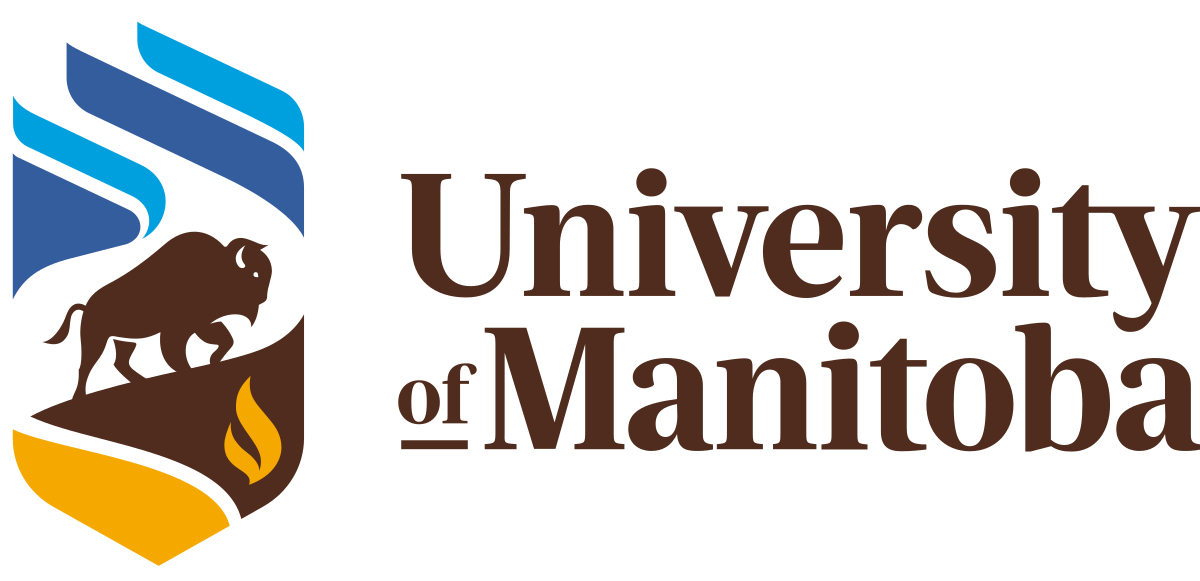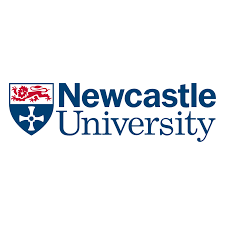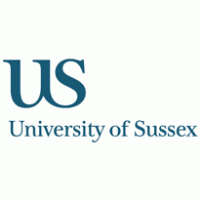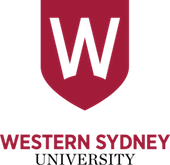 USA
USA
Why Study in USA?
The United States of America is a leading country in many fields and scientific research worldwide and has more than 1,000 accredited and ranked universities. The USA is receiving huge numbers of international students around the world because of the high-quality education standards and various curricula. So, the degree from USA universities is a strong foundation for building a student future and enhancing career
As one of the most important advantages of studying in the USA is the diverse education environment, job opportunity, and different cultures, which will make the experience full knowledge, and positively affect students in the USA
There are many schools specialized in teaching English language programs and training courses that the USA is distinguished from other countries
The USA is proud of its technological development and has made sure that all sectors of education are equipped with the latest technology, which makes the university life of students more simple
Major cities in the USA: Washington, New York, Boston, San Francisco, Chicago, Los Angeles, Philadelphia, Pittsburgh, Baltimore, San Diego, Atlanta
Education System in the USA
The higher education system in the USA offers many options of programs for intentional students , as the USA has more than 4,500 universities and schools that offer professional degrees. The education system is divided into the following:
Community College
These degrees offer associate diploma, and bachelor's degrees in some cases.
Higher Universities and institutes
These universities and institutes offer all the previous degrees in addition to the bachelor’s and master’s degrees and doctoral degrees.
Post Study Work Opportunity
The STEM OPT extension is 24 a month period of temporary training that directly related to an F-1 Student’s program of study in as approved STEM field .and effectively replaces the 17 months STEM OPT extension previously available to certain STEM Students.
- 4 Years Degree or 2 Years Master Degree Program
- 12 Months OPT
- 24 STEM Extenstion
↓
↓
Academic Year
Most USA universities and colleges start their programs in August/ September, which called fall intake. Some universities and colleges start their programs in January/February, which called Spring intake. In fact, an additional summer semester is offered for some programs from May to August.
Cost of living
The cost of living in the USA starts from USD 700 - 1,500 Per month. this depends on the location of the house and the type of accommodation such us on campus, off-campus, and homestay.

Student Visa Requirements in the USA
Documents required for a USA Student Visa
When applying for your student visa for the US, you will generally need:
- passport Valid for at least 6months
- Admission Offer Letter (I-20)
- Bank account statement for 6 months in English language and financial undertaking letter from the sponsor to cover the costs of studying and living (if applicable) or a financial guarantee from a government (Sponsor student)
- Personal photo 5 * 5 white background. (Loaded on CD)
- Academic qualification documents such as transcript, diploma or certificates
* There may be other additional requirements, so please contact the IDE consultant to obtain a detailed list of the required documents.
Studying Cost
The cost of tuition fees Varies in USA universities and English schools. As it depends on the qualification and university chosen. Medicine and engineering programs might be expensive than other programs. In general, the costs of studying in the USA are as follow:
| English Language Programs 1,200 - 1,800 $USD Per Month (Varies as per Course Length) | Community Colleges Programs 6,000 - 17,000 $USD per year | Bachelor degree Programs 20,000 - 35,000 $USD per year |
| Master Degree Programs 18,000 - 25,000 $USD per year | Doctoral Degree Programs 28,000 - 45,000 $USD per year |
The cost of the MBA degree in business administration, vocational programs such as law, medicine, dentistry is higher than that mentioned in the table.
 United Kingdom
United Kingdom
Why Study in UK?
The UK is one of the most important and best international countries in the field of education, The UK education system has high-quality standards and excellent reputation, so the institutions considered to be among the best teaching and research in the world
The UK is the main destination for students to learn the English language because it has created many techniques and methods currently used in teaching the English language, in addition to the fact that many universities provide English language courses before starting the bachelor’s or master’s degrees
The academic level is not the only reason that makes the student study in the UK but there are other reasons such as cultural and economic diversity, international student support services, free health care, scholarship opportunities, and part-time work
Major Cities in UK:London, Edinburgh, Manchester, Nottingham Birmingham, Coventry, Liverpool, Glasgow, Newcastle, Brighton, Oxford, Bournemouth, Bristol
Education System in UK
UK universities provide an advanced study through three major programs of higher education: Bachelor, Master, and Doctorate.
The duration of a Bachelor's degree in the UK is three years, and the duration of a Master's degree in one year.
There are various pathway programs in UK higher education for international students which are foundation programs and English language courses as these programs are additional assistance to start a Bachelor's or Master's degree.
Academic year
The standard academic year begins in September or October and runs until June or July in the UK. The average deadline for applications for undergraduate and postgraduate is in June of that year. Private pathway providers may offer additional intakes throughout the year
| Program | Intake | Deadline |
|---|---|---|
| Undergraduate | September | January |
| Postgraduate | September, *January | Flexible |
| Foundation | January, May, September | Flexible |
Cost of living
The average living costs between 600 to 850 pounds per person monthly and this includes accommodation and other expenses such as food, transportation, internet, Communications. Usually, the difference in cost for accommodation depends on the main cities such as London.

Student Visa Requirement for UK (Tier4)
Documents required for Tier 4 student visa
When applying for your Tier 4 visa, you will generally need:
- passport Valid for at least 6months
- Admission Offer Letter (CAS)
- Bank account statement for 3 months in English language and financial undertaking letter from the sponsor to cover the costs of studying and living (if applicable) or a financial guarantee from a government (Sponsor student)
- Academic qualification documents such as transcript, diploma or IELTS
- Parent approval letter, if you are under 18 years old.
- ATAS Clearance Certificate (if required)
* There may be other additional requirements, so please contact the IDE consultant to obtain a detailed list of the required documents.
Studying Cost
The cost of studying in the UK depends on various types of qualifications, university, and the city. There are some high-ranking colleges and universities in the UK with their own cost structures.
| English Language Programs 900 - 1,200 £ GBP Per Month (Varies as per course Length) | Foundation Programs 13,000 - 19,000 £ GBP per year | Bachelor degree Programs 15,000 - 23,000 £ GBP per year |
| Pre-Master Programs 10,000 - 13,000 £ GBP per year | Master Degree Programs 16,000 - 27,000 £ GBP per year | Doctoral Degree Programs 15,000 - 24,000 £ GBP per year |
The cost of studying for master’s degree programs such as law, medicine, dentistry, business administration, and some design programs is most costly.
 Australia
Australia
Why Study in Australia?
Here’s a comprehensive guide for all students who want to study in Australia
Australia has grown very rapidly as a popular destination to study around the world, it’s the best choice among English-speaking countries due to the quality and effectiveness of higher education system, as the Australian government established standardizes agency to monitor quality of higher education (TIQSA) provided by universities and educational institutions according to special standards recognized globally at all levels of education
The most important features that make Australia a leading provider of student education are:
- Provides varied work placement opportunities for graduates from university.
- Australia has the safest environment, political stability, and general lifestyle in it as the living cost in Australia is among the highest in the world.
- The diversity of cultures and civilizations has increased the number of students coming from abroad, which develops ideas for the future.
- Provides a wide range of educational fields in Australian universities such as technology, science, and innovation, medicine, management, engineering, tourism, and hospitality.
- There are a large number of different institutes and centers for teaching the English language, reached to 230 centers in the teaching of the English language spread in all Australian cities.
Major cities in Australia: Sydney, Melbourne, Brisbane, Perth, Adelaide
Education System in Australia
Australia educational institutions provide various programs level, starting from the Foundation level to graduate programs, which has flexibility and equipped with a global perspective where students can obtain advanced studies and pursue their studies through three main levels of higher education: Bachelor, Master, Doctorate.
Colleges and universities offer different graduate programs. The postgraduate degree contains three types: Master's degree (coursework), Master's degree (research), and Master's degree (extended). Likewise, the Ph.D. level has two types: Ph.D. (Research) and Ph.D. (Professional). Postgraduate entry requirements are very competitive required high levels of English proficiency and academic qualifications. Be aware that some programs such as medicine and architecture are offered only by universities
Some students need to develop their skills before starting their journey through bridging programs include English language preparation and foundation to complete a Bachelor's or Master's degree
Academic Intakes
In contrast to a single intake in Australian universities, colleges and universities offer two significant intakes. Intakes may also be referred to as a semester in certain universities.
There are two intakes available in Australia
- Semester 1:starts late February/early March to late May/early June
- Semester 2:starts late July/early August through to November
Cost of living
Living in Australia is among the highest levels around the world, but there are very good opportunities that help students cover a large part of their tuition and living costs, as international students are allowed to work for 20 hours per week.
Living in Australia can cost per month between 1,800 - 2,500 Australian dollars, including the daily life expense that includes eating, transportation, phone, internet and entertainment, where the difference of the housing is in major cities.

Student Visa Requirements in Australia.
Documents required for Student Visa:
The information you would like to fulfill student visa requirements can rely upon your nationality and that course you are studying. you will usually need:
- ⦁ passport Valid for at least 6 months
- ⦁ Admission Offer Letter (COE)
- ⦁ Bank account statement for 3 months in English language and financial undertaking letter from the sponsor to cover the costs of studying and living (if applicable) or a financial guarantee from a government (Sponsor student)
- ⦁ Academic qualification documents such as transcript, and IELTS
- ⦁ Parent approval letter, if you are under 18 years old
- ⦁ Your Genuine Temporary Entrant (GTE) statement
- ⦁ Health Insurance (HSHC)
* There may be other additional requirements, so please contact the IDE consultant to obtain a detailed list of the required documents
*All documents must be certified by our office.
*All documents must be translated in English.
Studying Cost
| English Language Program 900 – 1,200 $ AUD Per Month (Varies as per course Length) | Foundation 18,000 – 28,000 $ AUD Per Year | Undergraduate bachelor’s degree 29,000 – 48500,000 $ AUD Per Year |
| Postgraduate Master’s Degree 35,000 – 48,000 $ AUD Per Year | Graduate Certificate 19,000 – 25,000 $ AUD Per Year | Doctoral Degree 33,000 – 45,000 $ AUD Per Year |
 Malaysia
Malaysia
Why Study in Malaysia?
Malaysia is one of the most important countries that have paid attention to developing the education system with strong foundations it is distinguished by the best educational level among Southeast Asian countries, as the education system in Malaysia is subject to high quality standards and close monitoring by the Ministry of Higher Education that seeks to provide a unique educational level of Its type.
One of the advantages of studying in Malaysia is the presence of branches of international universities in addition to twinning programs with Malaysian universities where there are a large number of international universities, whether from America, Britain and other countries, in order to invest in educational system.
The advanced communications infrastructure, and campus facilities equipped with world-class quality.
Malaysia is one of the most politically stable countries in the world, with a low crime rate and innate protection from exposure to natural disasters, which makes it an attractive place to live.
Education System in Malaysia
The education system in Malaysia is similar to the education system in other developed countries, as the official language for studying in private universities in Malaysia is English. For public universities, some programs usually taught in Malaysian language. There are 43 universities, 31 private university colleges, 9 branches of foreign universities and 414 private colleges in Malaysia. Higher education in Malaysia is also divided into two parts:
1-Public universities, technical institutes, community colleges and Malaysian colleges
2-Private institutions of higher education that are not funded by the government, such as: private colleges, private universities and university colleges, as well as branches of international universities on the territory of Malaysia.
Bachelor's programs
The Bachelor’s degree in Malaysia usually ranges between 3-4 years for full-time students. Most programs are taught in private universities in the English language, while bachelors are taught in public universities mainly in the Malaysian language, with the exception of science or mathematics studies.
Postgraduate programs
The duration of the Master’s degree in Malaysia ranges from one to two years full-time depending on the major and the duration of doctoral study may take 4 years.
Integrated study programs
Malaysian universities offer students a great opportunity to graduate from the bachelor’s degree through the contracting of Malaysian universities with other international universities in the United States or Australia and Britain through the combined studies program, where the student can study majoring in an international university on the soil of Malaysia for a period of two years and then the student moves to the other country to complete the rest Study it.
Major cities in Malaysia: Kuala Lumpur, Penang, Johor Bahru, Malacca, Putrajaya
Academic year in Malaysia
Important dates in the Malaysian academic year differ from one university to another.
The year is divided into two semesters. The first semester starts from September to mid-January. The second semester runs from the end of February to the end of August.
The cost of living in Malaysia
One of the advantages of students to study in Malaysia is the relatively low cost of living compared to other countries. As the cost of living on campus or off universities is significantly low compared to other foreign countries. Based on our experience, the total cost of living in Malaysia ranges from 1,000-1,500 Malaysian ringgit ($ 250-375) per month.

Student Visa Requirements in Malaysia
In order to be ready to study in Malaysia, you will need to be compelled to apply for Student Pass, which acts as a student visa. this could be applied online before your arrival, however, it's a lot of common for your institution to apply on your behalf once you have accepted their offer of a place.
If you are applying for a Student visa, you will need:
- A passport sized photograph
- A copy of your passport (All Pages)
- A copy of your university offer letter
- Copies of academic certificates and transcripts
Studying Cost
The cost of studying in Malaysia is relatively low compared to countries like Australia, the United States, UK, France, Canada, etc. This is due to the currency conversion process that is in the interest of the student. Also, the educational authorities in Malaysia provide assistance to students to reduce personal expenses such as the possibility of working part-time. Opportunities for students and reduce the prices of trips, books and transportation to provide a comfortable study atmosphere for students.
| English Language Program 3,700 -4,200 RM Per Month (Varies as per course Length) | Foundation 20,000 – 25,000 RM Per Year | Undergraduate bachelor’s Degree 21,000 – 34,000 RM Per Year |
| Postgraduate Master’s Degree 30,000 – 40,000 RM Per Year | Doctoral Degree 16,000 – 25,000 RM Per Year |
 South Africa
South Africa
Why Study in South Africa?
South Africa is considered one of the most famous countries in Africa in terms of study where the education system has been completely renewed from basic education to higher education and focus on developing the educational sector by developing the methods of education and curriculum. South Africa has economic and social changes through global partnerships, and this has led to increase number of international students in universities and institutions.
South Africa is also distinguished by having many English centers specialized in teaching English, which has various courses that are appropriate for all students. The primary language of education is English, which enables the student to speak continuously in the English language which helps in learning the language in better way. The most important positive factors that made students study in South Africa is the competitive cost of studying, living and learn about different cultures.
Major cities in South Africa are: Table Mountain, Cape Town
South Africa's education system
The universities of South Africa are considered to be one of the modern and developed universities in Africa, where universities have been developed massively by established modern halls and advanced laboratories that allow the student to do research and studies in various fields, and universities.
South Africa has 26 public universities and more than thirty-five private universities in addition to a number of foreign universities that offer programs in most academic disciplines
The system of higher education and training in South Africa is almost based on the same of the most other countries education system, where undergraduate and graduate programs are offered in a wide range of different fields
Bachelor's programs
The bachelor's degree usually takes three years, students may choose to complete an additional academic year that requires research in the same field of bachelor's to obtain a bachelor’s degree with honors
Master's programs
After graduating and obtaining a bachelor’s degree, a student can continue his education in a master’s degree in which he delves into a major study and may take one to two years to complete.
Doctoral programs
Doctoral programs in South African universities have the same structure as those in international institutions - where PhDs are studied over a period of three to five years, in order to be eligible for a PhD, you will need an internationally recognized master's degree. Some institutions only accept candidates with a master's degree of 65% or more
Academic year
The academic year runs from February to December and includes two semesters. Where each semester usually consists of six weeks of classes, a one-week break, then seven weeks of classes, one week of study (called a week SWOT) then exams
The cost of living in South Africa
When compared to other English-speaking countries, South Africa is one of the places to study that provides affordable prices for all students. The cost of living ranges from 700 to 900 USD per month, including housing, meals, transportation, internet and entertainment.

Student Visa Requirement for South Africa
Documents required for student visa
When applying for your visa, you will generally need:
- passport Valid for at least 6 months
- Admission Offer Letter
- Bank account statement for 3 months in English language and financial undertaking letter from the sponsor to cover the costs of studying and living (if applicable) or a financial guarantee from a government (Sponsor student)
- A letter of identification from the employer (addressed to the Embassy of South Africa - specifying the purpose of travel - job title - applicant's salary) (in English)
- Academic qualification documents such as transcript, and IELTS
- Tow personal photo, white background. (Digital)
- health insurance
- Ticket booking
* There may be other additional requirements, so please contact the IDE consultant to obtain a detailed list of the required documents
Studying Cost
When contrasted with other English-speaking destination locations, South Africa is one of the most affordable places to study. Thinking about the spending plan, you’ll find something just right for you in a diverse range of education options.
| English Language Programs 800 - 1,000 € Per Month (Varies as per course Length) | Undergraduate bachelor’s Degree 2,000 – 4,000 € Per Year |
| Postgraduate Master’s Degree 2,000 – 3,000 € Per Year | Doctoral Degree 5,000 – 6,000 € Per Year |
The cost of studying for master’s degree programs such as law, medicine, dentistry, business administration, and some design programs is most costly.
 Malta
Malta
Why Study in Malta?
Malta is a small island in the middle of the Mediterranean Sea, characterized by its picturesque nature, and it is a popular destination for a large number of international students.
It cares about the level of education and always strives to develop educational curriculum and study programs provided to its students. Malta is a distinguished destination that has a good system of education. Most of universities and specialized institutes are recognized and some British and American universities has branches in Malta.
Malta is considered one of the ideal countries specialized in teaching the English language, they have a set of programs that help the student in improving his English language level. One of the most important factors attracting international students to study in Malta is that the cost of living is affordable. in addition to being among the safest country in the world
The most important study cities in Malta are: Valletta, Maliha, Paula, Sliema, Saint Julian's, Gozo
Education system
There are three levels of education: primary, secondary education, and higher education (including higher and vocational training). The education system in Malta is based on British education systems. Where universities are taught in the English language
Bachelor Programs
The duration of a Bachelor's degree in Malta is three years.
Master's programs
The duration of a Master's degree in Malta is 1-2 years, depending on the major and the university.
In order to start studying for a master's degree, you must obtain a Bachelor's degree and an IELTS English Language Certificate .
Doctoral programs
In order to study in PhD programs, a student must provide a Bachelor's and Master's degree with a high GPA and a research project
Academic year
The standard academic year for the first semester begins in October to February, while the second semester begins in February to July. The average deadline for applications for undergraduate and postgraduate is in June of that year
The cost of living
The cost of living in Malta is relatively low compared to European countries, where the average cost of living starts from 800 to 1,200 euros monthly per student, which includes housing, meals, and other expenses such as (transportation, entertainment, and the Internet)

Student Visa Requirement for Malta
Documents required for student visa
When applying for your visa, you will generally need:
- passport Valid for at least 6 months
- Admission Offer Letter
- Bank account statement for 6 months in English language and financial undertaking letter from the sponsor to cover the costs of studying and living (if applicable) or a financial guarantee from a government (Sponsor student)
- A letter of identification from the employer (addressed to the Embassy of Malta - specifying the purpose of travel - job title - applicant's salary) (in English)
- Academic qualification documents such as transcript, and IELTS
- Tow personal photo, white background.
- health insurance
- Ticket booking
* There may be other additional requirements, so please contact the IDE consultant to obtain a detailed list of the required documents.
Studying Cost
Malta is a European country and the quality of education is high, where the cost of studying is affordable for students if it is compared to other European countries. The cost of studying is different which depends on the type of university and college
| English Language Programs 800 - 1,000 € Per Month (Varies as per course Length) | Undergraduate bachelor’s Degree 6,000 – 9,000 € Per Year |
| Postgraduate Master’s Degree 5,000 – 8,000 € Per Year | Doctoral Degree 10,000 – 12,000 € Per Year |
 Canada
Canada
Why Study in Canada?
Studying in Canada is at the height of its success, because of its leadership in business, technology, arts, and culture. This makes the best education systems, as most Canadian universities are consistently ranked among the best universities in the world for many years.
Canada has lot of universities internationally recognized compared to many other countries. in addition, many programs and levels provided by English language institutes are suitable for everyone.
One of the things that characterizes Canada is that it has many programs designed specifically to encourage and support students such as Social work and free health care. Several studies have classified Canada as one of the safest countries to live in. Where personal safety is one of the most important elements of studying abroad, especially when living alone away from your family and friends. Canada also has a multi-cultural policy and is keen to protect and respect the customs and traditions of all people.
Major cities in Canada: Ottawa, Toronto, Vancouver, Montreal
Education System in Canada
There are different types of qualifications that educational institutions offer in Canada:
University:
Students can apply for a Bachelor's degree, graduate degree, diploma, professional degrees, and doctorate degrees at Canadian universitiesUniversity colleges:
The programs offered by the university colleges include diploma and university transfer programsCommunity Colleges:
Students can obtain a diploma, associate degree, university degree, and graduate diploma in community collegesVocational and Technical Colleges:
Higher Diploma Certificate for Technical Education
The cost of living in Canada
Living expenses differs between the provinces and cities. costs are also relatively low on the outskirts of cities, Normally the cost of living ranges between 900 to 1,200 Canadian dollars per month, including the daily expenses of food, transportation and personal expenses, and may differ between residence of a university or institute, or a residence with a family.
Aacademic year
If you want to apply to study in Canada, you should know that Canadian colleges and universities offer two major intakes.
| Program | Intake | Deadline |
|---|---|---|
| Undergraduate and postgraduate in a University | Fall – September
Winter - January |
December - March
September - November |
| Diploma programs in colleges | January
May August/September |
August - September January - February February - April |

Student Visa Requirements in Canada
Documents required for your study permit
To apply for your study permit, you will need:
- passport Valid for at least 6 months
- Admission Offer Letter (LOA)
- Bank account statement for 6 months in English language and financial undertaking letter from the sponsor to cover the costs of studying and living (if applicable) or a financial guarantee from a government (Sponsor student)
- Academic qualification documents such as transcript, and IELTS
- study purpose letter.
- personal photo, white background. (Digital)
- Birth certificate translated into English
Studying Cost
When contrasted with other English-speaking destination locations, Canada is one of the most affordable places to study. Thinking about the spending plan, you’ll find something just right for you in a diverse range of education options:
| English Program 900 – 1,000 $ CAD Per Month (Varies as per course Length) | Undergraduate bachelor’s Degree 20,000 – 39,000 $ CAD Per Year |
| Postgraduate Master’s Degree 17,000 – 35,000 $ CAD Per Year | MBA Master’s Degree 30,000 – 40,000 $ CAD Per Year |
| Doctoral Degree 14,000 – 30,000 $ CAD Per Year | Diplomas Programs 10,000 – 18,000 $ CAD Per Year |
 New Zealand
New Zealand
Why to Study in New Zealand
Despite New Zealand's isolated location, New Zealand universities have succeeded in attracting the attention of international students. as New Zealand includes eight of the best universities in the world, but it owns a distinct and advanced educational system, which contains the latest educational methods and the presence of high-level teaching staff. In addition to the organized university infrastructure, it is a great option for students who seek the highest educational standards and internationally recognized.
New Zealand is one of the most important countries that focuses on teaching the English language, it contains many cities that speak English as a primary language, so it gives the student an opportunity to apply everything he learns continuously, and one of the advantages in English language teaching institutes is that the small numbers of students in the classroom which gives you more opportunity to focus and benefit.
One of the most important factors that encouraged students to study in New Zealand is the low costs of studying and living, in addition to the scenic beauty and quiet lifestyle, which helps a lot in studying, in addition to that during the study period students can work a maximum of 20 hours per week and 40 hours during the holidays, Master's, doctorate and research students can study 40 hours per week for the duration of their studies.
Major cities in New Zealand: Wellington, Auckland, Christchurch, Dunedin, Hamilton
Education System In New Zealand
The New Zealand education system is similar to Australian and British counterparts, as it is divided into three sections: primary, secondary, and higher, or post-secondary, and this generally includes: universities, private institutions, colleges, and technical institutes.
There are eight universities in New Zealand in addition to 18 institutes of technology, and more than 600 training schools that help improve specialized skills, five of these universities are among the top 50 universities in the world and New Zealand universities are famous in the fields of business administration, technology, engineering, medicine and biological sciences.
Higher Education
Students can enroll in higher education programs to obtain an advanced degree and continue their studies in New Zealand. There are three main types of higher education: Bachelor's, Master's and Doctoral degrees. Teaching in universities is usually done through lectures attended by a large number of students, in addition to classes in classes for small groups of students.
Vocational education and training
Getting a VET qualification is a path that will make it easier for you to enter a job or continue studying at university. There are many vocational training programs in areas such as information technology, business services, art and media, tourism and hospitality, child care, transportation and logistics, construction, mining, manufacturing and rural industries.
Bridging programs
Bridging programs in the New Zealand education system are designed to assist and develop international students to evolve their English language skills and qualification to proceed with the Bachelor's or Master's degree.
Academic Year
New Zealand universities and institutions offer two major intakes. In some universities, intakes may also be referred to as a semester. The two intakes available in New Zealand are:
- Semester 1: February to June
- Semester 2: July to November
Admissions for vocational courses may also be available in the months of March, April and May.
The cost of living in New Zealand
New Zealand is a great study destination and suitable for students due to the low cost of living in it compared to Australia or Britain. We can estimate the cost of living and other expenses in New Zealand from 1,200 to 1,500 NZD per month

Student Visa Requirements for New Zealand
Applies for a visa; you must have the following documentation ready:
- passport Valid for at least 6 months
- Admission Offer Letter
- Bank account statement for 6 months in English language and financial undertaking letter from the sponsor to cover the costs of studying and living (if applicable) or a financial guarantee from a government (Sponsor student)
- Academic qualification documents such as transcript, and IELTS
- personal photo, white background. (Digital)
* There may be other additional requirements, so please contact the IDE consultant to obtain a detailed list of the required documents
Studying Cost
While studying in New Zealand is relatively affordable, there are varied tuitions fees that you would like to think about before you move to the country.
| English Language Studies Program 1,400 – 1,600 $ NZD Per Month (Varies as per course Length) | Foundation 20,000 – 23,000 $ NZD Per Year | Undergraduate bachelor’s Degree 20,000 – 25,000 $ NZD Per Year |
| Postgraduate Master’s Degree 28,000 – 38,000 $ NZD Per Year | Doctoral Degree 42,000 – 35,000 $ NZD Per Year |
 Ireland
Ireland
Why to Study in Ireland?
Ireland is known as one of the European countries that have the best quality education. As many universities in Ireland ranked global which meets the competitive economy needs and the transfer of knowledge between universities and international companies, Government is look forward to have sustainability to deliver optimum quality and efficiency of education in all fields.
Ireland is a popular choice for international students and the ideal destination that gives them a great opportunity to start a successful career. Colleges and universities also offer some good training courses, which students benefit professionally and professionally.
What distinguishes the study in Ireland is that it is one of the countries that is safe for life and has mixture between the higher educational level, historical cities, beautiful landscapes and a unique heritage. In addition to the cost of education is a little lower compared to most other countries, which makes it an ideal place.
Ireland is one of the countries that is teach English language, by using the best educational methods by choosing educational curricula matches the students need.
Major study cities in Ireland: Dublin, Galloway, Cork, Limerick, Maynooth
Education System Ireland
Higher education
Higher education in Ireland is almost similar to the higher education of UK, offer variety of programs in both level undergraduate and graduate. .
Bachelor's Degree
The bachelor's degree period is three to four years, and some programs of study may take longer as medical studies. Irish universities offer variety of programs, such as a Bachelor’s degree in Arts, Sciences, Commerce, Engineering and many other programs.
Master's Degree
After graduating and obtaining a bachelor’s degree, student can continue his education in a master’s degree, in which he can have specialization program and may take one to two years.
There are two main types of masters:
Masters of coursework:
a professional qualification involving the study of a specified set of core units and a selection of eligible elective units. Undertaking a coursework program will mean that you will attend classes, complete assignments and sit exams where applicable. Usually the MA takes one year, but some may take two years to complete.
Master of Research:
involves the submission of a completed thesis based on an independent research project. Students studying a Masters by Research work independently with the support of a supervisor and the School.
Doctoral Degree
The student is awarded a PhD after working on a thesis of achievement which is based on research. The study for a PhD degree takes three years.
Aacademic year
Irish University and colleges offer two major intakes. Intakes may also be referred to as a semester in some universities. The two intakes available in Ireland are:
- Fall/Semester 1: Starts early September and runs till December
- Spring/Semester 2 Starts late January through to May
Deadlines vary basis institution and your program. Please speak with your counsellor for more information.
The cost of living in Ireland
The cost of living in Ireland is relatively moderate compared to other countries, but the costs vary from city to city, as large cities have higher costs than suburbs. Ireland's cost of living ranges from 1,200 to 1,500 euros per month.

Ireland Student Visa Checklist
- passport Valid for at least 12 months
- Admission Offer Letter
- Bank account statement for 6 months in English language and financial undertaking letter from the sponsor to cover the costs of studying and living (if applicable) or a financial guarantee from a government (Sponsor student)
- Academic qualification documents such as transcript, and IELTS
- personal photo, white background. (Digital)
- health insurance
- Ticket booking
* There may be other additional requirements, so please contact the IDE consultant to obtain a detailed list of the required documents
Indicative Study Costs for Irish Programs
The costs of studying in Ireland are relatively low compared to British universities, despite the similar educational environment in the two countries. The costs of studying in Ireland for students range from:
| English Language Studies €900 - €1,100 Per Month (Varies as per course Length) | Foundation € 8,000 - € 15,000 annually |
| Undergraduate bachelor’s Degree €18,000 – €25,000 Per Year | Postgraduate Master’s Degree € 16,000 – € 22,000 Per Year |
| Doctoral Degree € 10,000 - € 12,000 annually |
Do you want to know more about studying abroad?
Book an appointment with one of our consultants
Please Submit Your Contact Details and We Will Get Back to You As Soon As Possible
 Whatsapp
Whatsapp



